- Home
- Franklin W. Dixon
Passport to Danger Page 5
Passport to Danger Read online
Page 5
The field filled up with performers in bright costumes. The music grew louder and the beat more hypnotic. It sounded as if everyone within the walls of Le Stade were dancing and singing and cheering and yelling.
Shadows fell over the stands as the sun glided down to the horizon. Joe’s whole body seemed to vibrate with the drumbeats and the rocking crowd. When he heard the first pop from the opposite end of the stadium, he jumped. “Looks like Sylvio and the gang are getting started,” he yelled to Frank.
Although his brother was only a few yards away, he didn’t seem to hear Joe. “No way he can hear me over this noise,” Joe said to himself. The voices in the crowd seemed to blend into one huge roar. Joe heard another pop and then another. Instinctively he looked up to watch for the fireworks explosion. Another noise, however, brought his attention back to Le Stade.
The crowd roar suddenly stopped. Joe’s pulse seemed to stop too. For an instant all the sounds seemed muffled, as if someone had stuffed wads of cotton in Joe’s ears.
Then the sound charged up again. The crowd’s roaring changed to cries and shrieks, punctuated by popping and crackling and hissing. Small explosions lit up Le Stade as the lights in the suspended roof burst with shattering echoes and torrents of glass.
8 Yellow Card Up
* * *
Joe realized he’d been holding his breath, so he gasped for air. Then he leaped into action. Security guards materialized from every exit and began shuffling people to safety.
“Now’s when the safety-conscious design of this place shows its stuff,” Joe said to Frank as they pushed a couple of spectators in wheelchairs through the exit. They went back inside, joining other volunteers to help the evacuation. It went like clockwork.
Emptying the full house was a piece of cake. Joe was used to going out to the concession area of a stadium and winding back and forth along ramps and hairpin turns until he finally got down to the main-floor gates. At Le Stade, every exit—every gate—led directly outside. The spectators were cleared out in under eighteen minutes!
“Whoa—they’re still going,” Joe said, shielding his head with his arm. Another small explosion rained glass spears down on the field.
“I talked to someone in maintenance,” Frank said. “He wasn’t interested in saying much about what happened. I’m guessing, though, that the lights are controlled by a computer.”
“Yeah, that makes sense,” Joe said. “Small explosives must have been planted somewhere up there—not enough to cause a huge explosion—but just enough to shatter the lights.”
“And when the computer program kicked in the lights, it detonated the explosives,” Frank said.
“Exactly,” Joe said.
“One of the guards said that as far as he knew, there were only minor injuries,” Joe said.
“That’s good,” Frank said. “It could have been a lot worse if the evacuation hadn’t gone so smoothly.”
“They’re asking the volunteers to help with the cleanup,” Joe told his brother.
“Great,” Frank said. “It’ll give us a chance to check out the place.”
The volunteers inspected all the equipment and put it away. Le Stade was also swarming with its own guards, Paris police, and other official-looking security types.
While everyone was busy, the Hardys were able to sneak away for some serious snooping of their own. Frank headed back to Macri Magnifico’s setup, once again trying to talk to Sylvio.
As guards moved over the stands and looked under every seat, Joe went into the locker rooms. They were also full of security people. He picked up a short stack of towels and walked through as if he were on official cleanup duty. He tried to overhear what was being found, if anything, but the conversations were all in French and so muted that he couldn’t pick up much.
He wound back out and, still holding the towels, wandered out to the public parts of Le Stade. Security people poked around the shops, concession stands, and display areas. In the two restaurants, stadium guards looked under all the tables. Joe noticed something odd about one of the officers. He was dressed in the correct uniform, but his shoes stood out. They weren’t the black lace-ups of the other guards; they were combat boots.
Joe followed the man as he moved out of the restaurant, through the kitchen, and into a back hall. Keeping in the shadows and ducking into doorways, Joe kept enough distance between them that the guard was clearly not aware he was being followed.
Finally they reached an unmarked door. The guard used a key—or something else—to open it; Joe couldn’t tell from his vantage point. The guard disappeared behind the door, and Joe hurried to follow. After a few seconds, Joe slipped inside.
It was a large room filled with electronic consoles and computer equipment. He could see the guard across the room studying a schematic diagram on the wall. Then the man took out a small video camera and begin filming the diagram and the consoles that filled the room. As the guard backed around, Joe kept out of view. The man circled to the door, turned off the camera, and left.
Joe raced to the wall to look at the schematic. Then he left the room and found another security guard. “I just saw someone walking away from that room with a video camera,” Joe said. “He was dressed like you, but he had on combat boots instead of plain black shoes. It looked suspicious to me, so I thought I’d better report it.”
The guard’s face paled and his eyes narrowed as he looked at Joe. He scanned Joe’s volunteer ID.
Joe described the man in the boots and wrote his own name and local telephone number on a sheet of paper. The guard released him, with a warning to keep quiet about what he’d seen.
When Joe returned to the field, he pulled Frank over and told him what happened. “I’m not sure because the schematic was really complex, but I think it had to do with sliding the lower bank of stands under the middle bank when they want to have a larger arena,” Joe said. “I’m thinking maybe that’s the next sabotage plot. I’d hate to think what might happen if they rolled those stands under with twenty-five thousand people still sitting in them.”
“It probably wouldn’t work,” Frank said. “There’s got to be back-up security that keeps the stands from moving if people are in them.”
“But the saboteur might not know that,” Joe pointed out. They agreed to tell no one else but their dad what Joe had seen—not even Jacques.
“Volunteers, listen up.” The volunteer coordinator stepped up on a bench and called them all over. Frank and Joe joined the group.
“I’m sorry to give you bad news,” the coordinator said, his expression grim. “The security force at Le Stade has determined that, at this time, continuing with the tournament presents too great a risk to the teams and the spectators.” A groan rumbled through the crowd.
“As of this moment, the games are officially postponed until further notice. Please clean out your lockers and take everything to your residences. You will all be notified when it’s time to report back for duty. I’m sorry.” The coordinator hopped down from the bench and tromped off toward the locker room.
The Hardys decided to check in at the apartment, change clothes, and go out for some dinner. They cleared out their lockers and headed home. When they walked in, they found their dad watching the evening news and stirring some soup on the stove.
“Hey, there you are,” Fenton said. “Are you hungry?”
“Maybe we’ll have a little soup,” Frank said. “We’re probably going out later.”
“So you guys had another busy day?” Fenton asked, ladling up bowls of beef-and-onion soup. He nodded toward the television set. “I’ve been watching the news since I got home an hour ago. There are lots of special reports about the stadium and the lights. Someone even said there are rumors about another possible plot.”
Joe told his dad about his discovery while the three ate their soup. The television stayed on.
“Look, Frank. There’s the guy we saw outside the stadium yesterday,” Joe said, watching the special report. “August
e Bergerac, the local politician who’s been thrown out of office.”
Frank watched the thin man. He was speaking into a small microphone, just as he had the day before outside Le Stade. He was dressed in a suit and tie, with perfectly combed hair. Around him stood a medium-size crowd, a little larger than the group he’d had in front of the stadium.
“So you two know about Bergerac too,” Fenton said, smiling. “The symposium thinks he’s the one to watch. Listen to what he’s saying.”
Fenton had tuned to the BBC London station, so everything was in English. Bergerac’s speech was translated instantly.
“Do you now understand what I have been telling you?” Bergerac spoke in loud, low tones, but the translator sounded like a young woman. “Do you see how my warnings have come true?”
To each question, the crowd shouted “Oui!” A few raised their fists and shook them in the air.
“Since I was ousted from my former position,” the woman translated, “the beloved city of Paris has fallen into violent hands. I am no longer your trusted servant and that is an extreme error in judgment. Ejecting me from office has resulted in an increase of crime in our city, a two-day reign of sabotage at Le Stade.”
“It’s the same basic message he was spouting yesterday,” Joe said.
“Only that was before the so-called two-day reign of sabotage,” Frank pointed out.
“Why has the crime increased?” Bergerac asked. “What is missing from the government of Paris, missing from the enforcement of the laws? I am missing,” Bergerac answered his own question. “My leadership is missing. We need to show the world a promise of security during this international event of such high visibility. We need someone pledged to ensure the safety of all involved.”
“And that would be you, right, Auguste?” Fenton talked back to the screen.
“You must join me in telling those in charge of security that we are not satisfied with their efforts,” Bergerac concluded. “Seek out those responsible for protecting Parisians and our international visitors. Express your displeasure with them for these lapses. Demand that they answer our call for a safe, secure Paris.” The crowd erupted into raucous cheering and chants.
“He sure knows how to rally the troops,” Fenton said, switching off the set. “Most of the people at the symposium suspect that Bergerac and his henchmen were involved in the incidents at Le Stade. They consider him to be the biggest threat by far to the tournament and the stadium. He apparently will do anything to create an atmosphere that will guarantee his reelection.”
Frank and Joe told their dad about everything that happened to them that day and about the evidence and clues they’d gathered. By the time they’d finished, they all realized that each of the three had a different theory as to what was happening—and a different suspect.
“From everything I’ve heard from the security experts, I’d go with Bergerac,” Fenton concluded.
“Well, I’m not convinced that Montie Roberts is completely innocent,” Frank said. He might not actually be sabotaging the tournament as some people think. But I can’t erase the image of him with Coach Sant’Anna in that locker room.”
“My vote’s for Victoire,” Joe said. “If Coach Sant’Anna didn’t write an M for ‘Montie’ as his clue, then it could be a double V for ‘Victoire.’ That guy really clipped me in the Conciergerie. He wanted my backpack and that tape. The tape itself talks about the stadium and the spectators. They’re probably referring to messing with the stands.”
“We know that a lot of them wear combat boots, too,” Frank said, nodding. “That guard could have been one of them in a stolen security uniform.”
“Well, whichever one it is,” Fenton cautioned, “we can at least agree that we’re playing with some pretty heavy hitters. I’m counting on you two to watch your backs.”
“We’ll be very careful,” Frank assured his dad. “And you, too.”
By the time they finished their meal, it was close to ten o’clock. “I’ve got a tour tomorrow morning—can’t tell you where,” Fenton said. “But the driver’s picking me up at five, so I’m hitting the sack. Remember to be careful.” With that, Fenton left the room.
“So what next?” Joe asked his brother. “I’m too wired to go to bed now.”
“Me too,” Frank said. “We’re off duty tomorrow from the tournament. So we’ll have all day to chase clues. Tonight let’s see a little of Paris!”
“Sounds good,” Joe said. “I’ll call Jacques. He’ll know some cool places to go. We can meet at the computer café by the bookstalls.” Joe gave Jacques a call, and the two boys got ready for their night out.
• • •
The Hardys arrived at the café first, so they ordered pizza and sodas. When Jacques came in, there was a flurry of recognition. Several customers waved and called to him. A couple in the corner stood and then fell to one knee with bowed heads, as if Jacques were royalty.
“So you’re pretty famous here, huh?” Joe said to Jacques as he joined them at the table.
“I’ve been known to hack around a little in the past,” Jacques said, chuckling. “I put myself through university by hiring out my computer skills. Now I just use the word processor.” He looked around quickly and leaned in to whisper to the teens. “There’s something I haven’t told you two yet.”
Jacques spoke in hushed tones. “I’m writing a book,” he confessed. “It’s a real thriller—all about spies and saboteurs. That’s why I’m so hooked on what’s happening at Le Stade. And that’s why I want to hang with you two. You can be models for my spies!”
“Cool,” Joe said. He leaned back until his chair rested on the wall.
“See, we can solve this case together, and then I can use parts of it for my book. You cut me in on everything, and I’ll trade my hacking skills. Anything you need to find on a computer, I can probably get for you. We can be a strong team.”
“Okay,” Frank said. “Sounds good.”
The three toasted their partnership with sodas and downed the pizza. Then Jacques took them on a tour of some of his favorite hangouts. By the time the Hardys arrived back at the apartment, they were really feeling the effects of the long day.
The two Hardys were in their beds within minutes of getting in the door. Frank mumbled something about making a list of computer chores for Jacques to handle the next day. As he drifted into sleep, a weird two-toned buzz hammered through his foggy brain.
“Mmmph,” Joe muttered. “Phone. You get it.”
Frank forced himself into full consciousness and sat up. “Where is it?” he asked, turning on the light. Joe’s only response was a deep, long sigh ending in a sort of rumbling snore.
Frank stumbled through the room and out into the hall. The phone was buzzing from a small shelf carved into the wall. He grabbed the receiver and cut off the sound in midbuzz.
“Hello,” he said. “Bonsoir?”
“Frank Hardy?” a scratchy familiar voice answered in English. “This is Isabelle Genet.”
9 The Art of Detecting
* * *
“Mademoiselle Genet,” Frank said. He shook his head; he knew it was time to be wide-awake. “What can I do for you?”
“I would like to meet with you and your brother,” she said. “I have changed my mind since our previous conversation. I would be happy to advise you on how to set up an organization like Victoire in the United States. It is an admirable goal, and I should not have been so abrupt in rejecting your request.”
“That’s great news, Mademoiselle Genet.” Frank’s mind had gone from nearly asleep to high alert. “When and where?”
“How about meeting at the Louvre,” she suggested. “At the foot of La Victoire de Samothrace, at three o’clock?”
“We’ll be there,” Frank answered. “And thank you.”
“Au revoir.” Mademoiselle Genet signed off, and the receiver went dead.
By the time Frank got back to his bed, the sleep curtain was closing on his brain again. He scrib
bled three—Louvre—IG on a notepad on the bedside table and quickly sank into a deep sleep.
• • •
Friday morning began with much better weather than Thursday had. All the fog and chilly air were chased away by sunny blue skies. Fenton was long gone by ten, the time Frank and Joe rolled out of their beds.
The unexpected invitation from Isabelle Genet made both Hardys suspicious of a setup. Over breakfast they checked out tourist guides to the Louvre. It wasn’t easy trying to use small maps to get a feel for the enormous scope and scale of the famous art museum.
“We’re meeting at La Victoire de Samothrace,” Frank said. “That’s the sculpture of Winged Victory.”
“Victoire… Victory. I get it,” Joe said.
“Remember what Dad told us about the museum?” Frank asked Joe.
“You mean the rumors about the passageways and staircases hidden between the walls?” Joe asked.
“Exactly,” Frank said. “This place was a palace for French kings from 1190 on. So there were escape routes built into it.”
“It’s been a museum for over two hundred years. Too bad the secret stuff isn’t on the map,” Joe said. He looked at another guide. “I wonder why she chose the Louvre in the first place? It’s one of the most famous places in Paris.”
“That’s probably why,” Frank pointed out. “She’s really into high-profile places. She works hard at making sure everyone sees her and knows who she is.”
“Could be,” Joe said with a smile. “And maybe she’s just an art lover.”
“Or…” Frank paused for a moment before he spoke again. “Remember what Jacques told us? No one really knows where the Victoire headquarters is. Maybe it’s near the Louvre, and it’s just convenient for her to meet us there.”
“Speaking of Jacques, should we call him and let him in on this?”

 The Great Pumpkin Smash
The Great Pumpkin Smash Who Let the Frogs Out?
Who Let the Frogs Out? Return to Black Bear Mountain
Return to Black Bear Mountain A Treacherous Tide
A Treacherous Tide Bug-Napped
Bug-Napped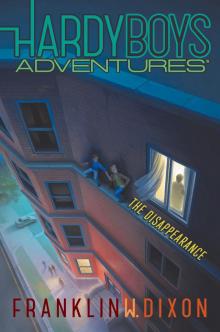 The Disappearance
The Disappearance Sea Life Secrets
Sea Life Secrets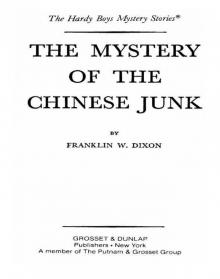 The Mystery of the Chinese Junk
The Mystery of the Chinese Junk A Skateboard Cat-astrophe
A Skateboard Cat-astrophe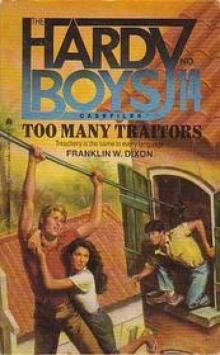 Too Many Traitors
Too Many Traitors Galaxy X
Galaxy X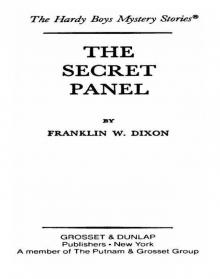 The Secret Panel
The Secret Panel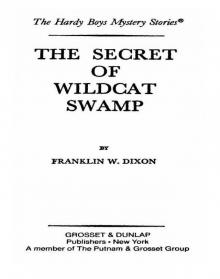 The Secret of Wildcat Swamp
The Secret of Wildcat Swamp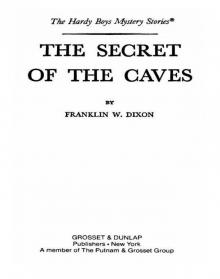 The Secret of the Caves
The Secret of the Caves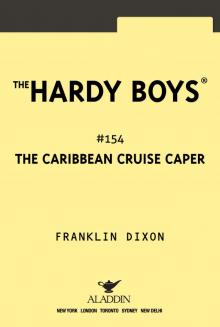 The Caribbean Cruise Caper
The Caribbean Cruise Caper Without a Trace
Without a Trace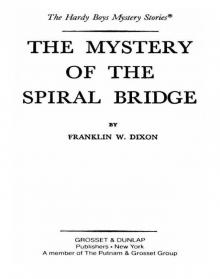 The Mystery of the Spiral Bridge
The Mystery of the Spiral Bridge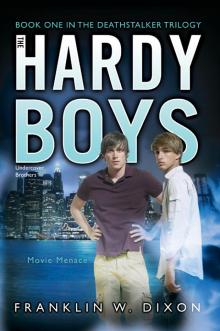 Movie Menace
Movie Menace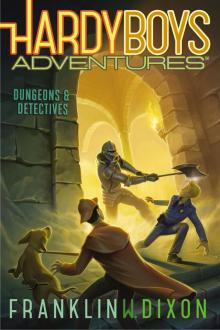 Dungeons & Detectives
Dungeons & Detectives Water-Ski Wipeout
Water-Ski Wipeout The Case of the Psychic's Vision
The Case of the Psychic's Vision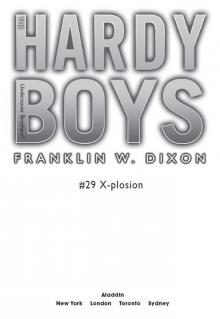 X-plosion
X-plosion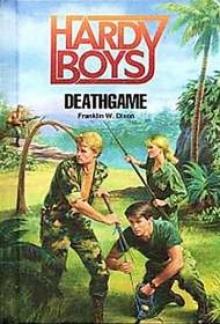 Deathgame
Deathgame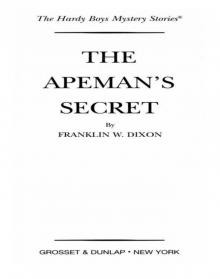 The Apeman's Secret
The Apeman's Secret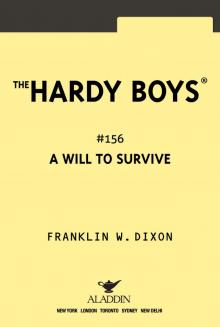 A Will to Survive
A Will to Survive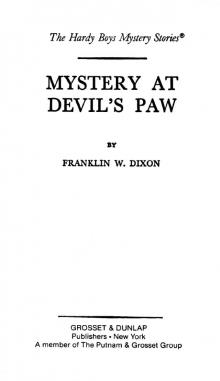 Mystery at Devil's Paw
Mystery at Devil's Paw Blood Money
Blood Money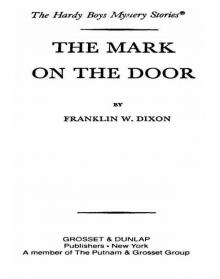 The Mark on the Door
The Mark on the Door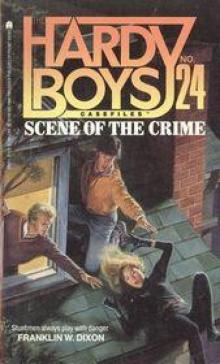 Scene of the Crime
Scene of the Crime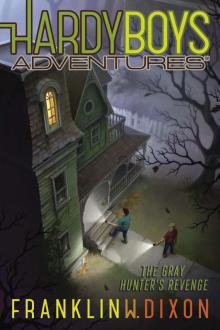 The Gray Hunter's Revenge
The Gray Hunter's Revenge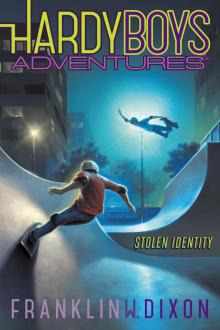 Stolen Identity
Stolen Identity The Mummy's Curse
The Mummy's Curse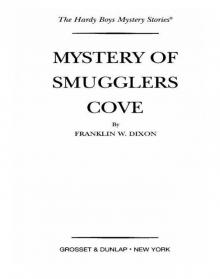 Mystery of Smugglers Cove
Mystery of Smugglers Cove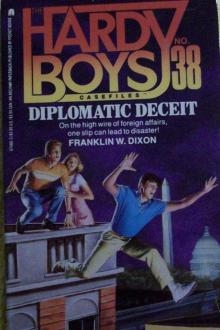 Diplomatic Deceit
Diplomatic Deceit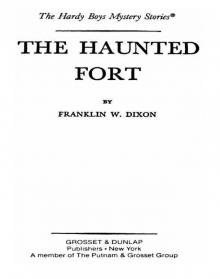 The Haunted Fort
The Haunted Fort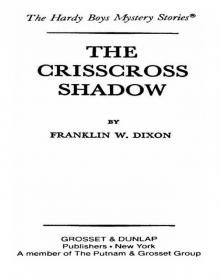 The Crisscross Shadow
The Crisscross Shadow Secret of the Red Arrow
Secret of the Red Arrow Trial and Terror
Trial and Terror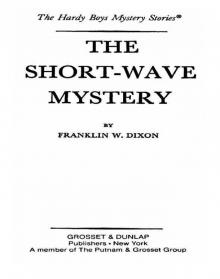 The Short-Wave Mystery
The Short-Wave Mystery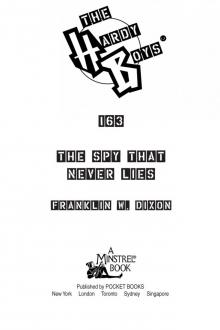 The Spy That Never Lies
The Spy That Never Lies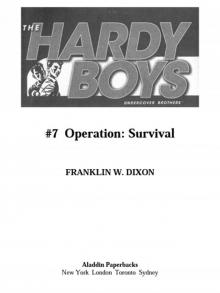 Operation: Survival
Operation: Survival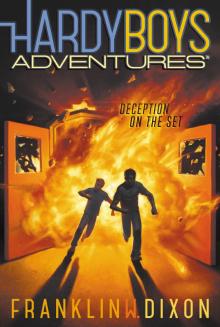 Deception on the Set
Deception on the Set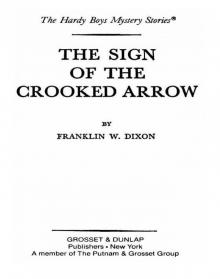 The Sign of the Crooked Arrow
The Sign of the Crooked Arrow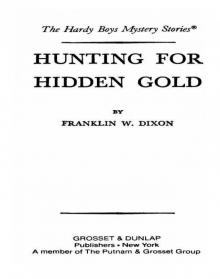 Hunting for Hidden Gold
Hunting for Hidden Gold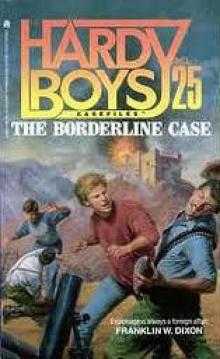 Disaster for Hire
Disaster for Hire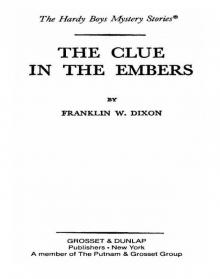 The Clue in the Embers
The Clue in the Embers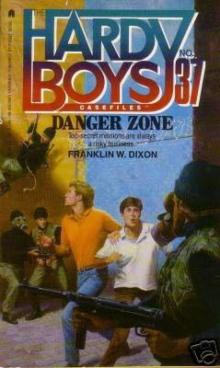 Danger Zone
Danger Zone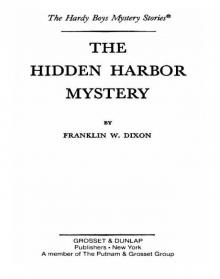 The Hidden Harbor Mystery
The Hidden Harbor Mystery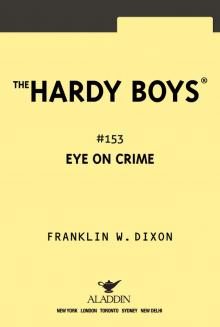 Eye on Crime
Eye on Crime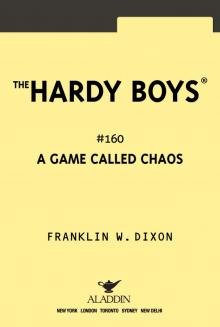 A Game Called Chaos
A Game Called Chaos The Bicycle Thief
The Bicycle Thief The Missing Playbook
The Missing Playbook Survival Run
Survival Run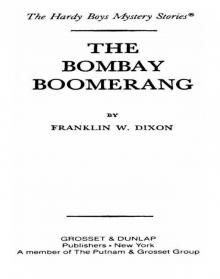 The Bombay Boomerang
The Bombay Boomerang Mystery of the Samurai Sword
Mystery of the Samurai Sword Burned
Burned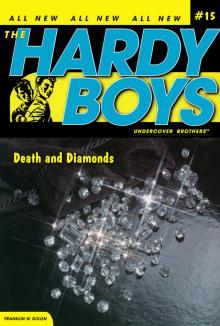 Death and Diamonds
Death and Diamonds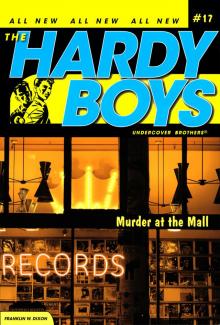 Murder at the Mall
Murder at the Mall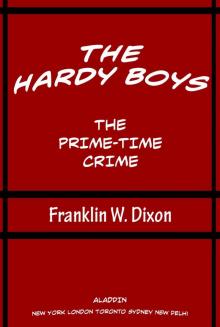 The Prime-Time Crime
The Prime-Time Crime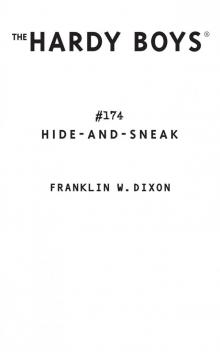 Hide-and-Sneak
Hide-and-Sneak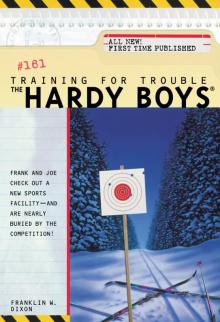 Training for Trouble
Training for Trouble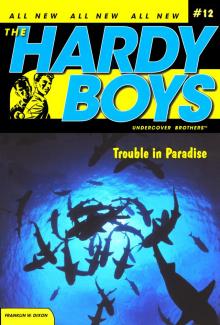 Trouble in Paradise
Trouble in Paradise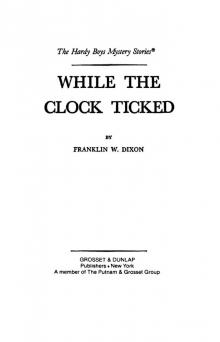 While the Clock Ticked
While the Clock Ticked The Alaskan Adventure
The Alaskan Adventure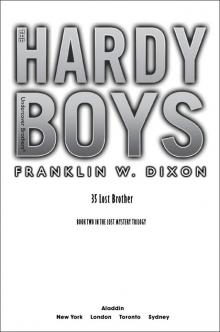 The Lost Brother
The Lost Brother Tunnel of Secrets
Tunnel of Secrets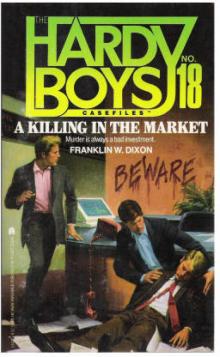 A Killing in the Market
A Killing in the Market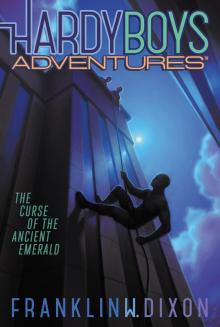 The Curse of the Ancient Emerald
The Curse of the Ancient Emerald The Arctic Patrol Mystery
The Arctic Patrol Mystery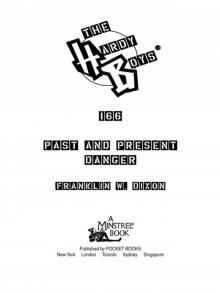 Past and Present Danger
Past and Present Danger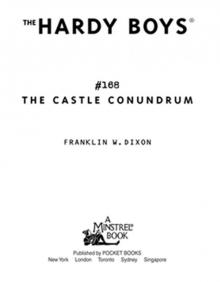 The Castle Conundrum (Hardy Boys)
The Castle Conundrum (Hardy Boys) Farming Fear
Farming Fear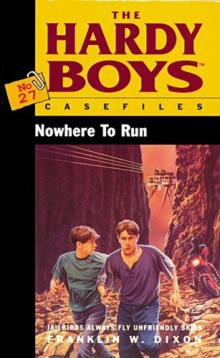 Nowhere to Run
Nowhere to Run The Secret of the Soldier's Gold
The Secret of the Soldier's Gold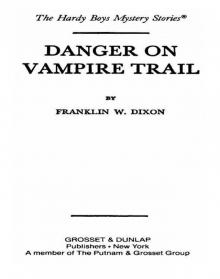 Danger on Vampire Trail
Danger on Vampire Trail The Lure of the Italian Treasure
The Lure of the Italian Treasure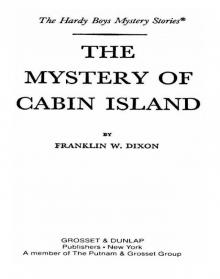 The Mystery of Cabin Island
The Mystery of Cabin Island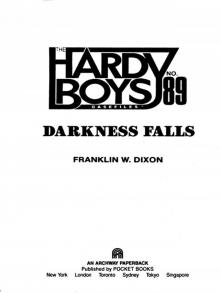 Darkness Falls
Darkness Falls Night of the Werewolf
Night of the Werewolf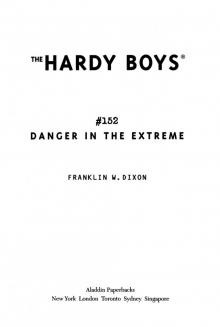 Danger in the Extreme
Danger in the Extreme The Lazarus Plot
The Lazarus Plot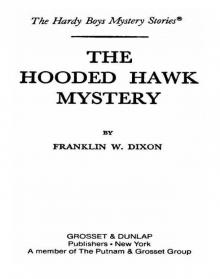 The Hooded Hawk Mystery
The Hooded Hawk Mystery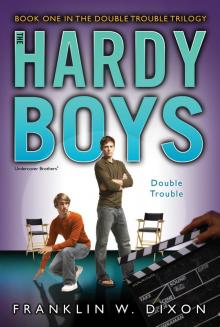 Double Trouble
Double Trouble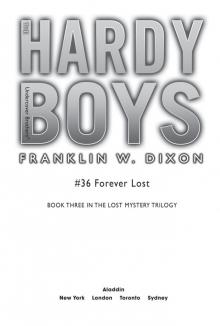 Forever Lost
Forever Lost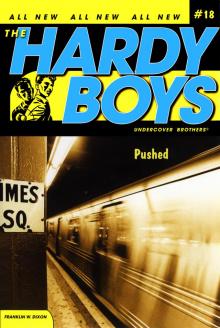 Pushed
Pushed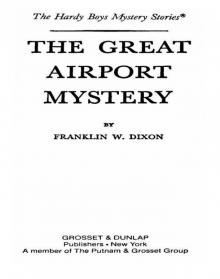 The Great Airport Mystery
The Great Airport Mystery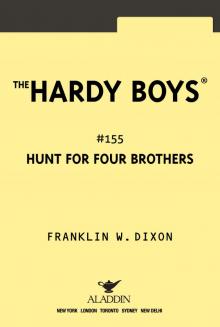 The Hunt for Four Brothers
The Hunt for Four Brothers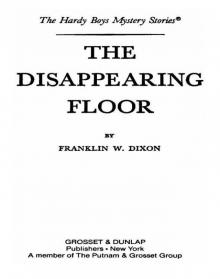 The Disappearing Floor
The Disappearing Floor Motocross Madness
Motocross Madness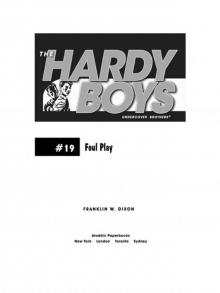 Foul Play
Foul Play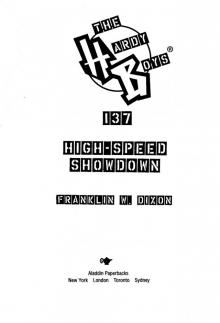 High-Speed Showdown
High-Speed Showdown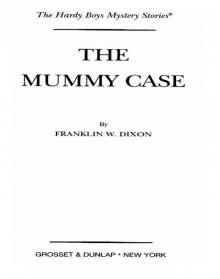 The Mummy Case
The Mummy Case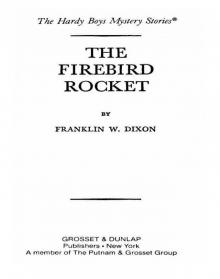 The Firebird Rocket
The Firebird Rocket Trouble in Warp Space
Trouble in Warp Space Ship of Secrets
Ship of Secrets Line of Fire
Line of Fire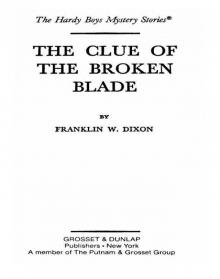 The Clue of the Broken Blade
The Clue of the Broken Blade Medieval Upheaval
Medieval Upheaval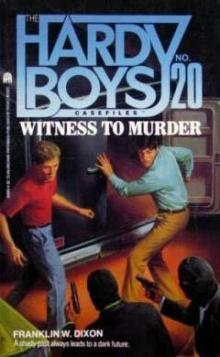 Witness to Murder
Witness to Murder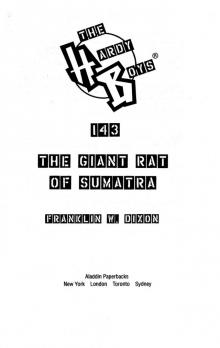 The Giant Rat of Sumatra
The Giant Rat of Sumatra Attack of the Bayport Beast
Attack of the Bayport Beast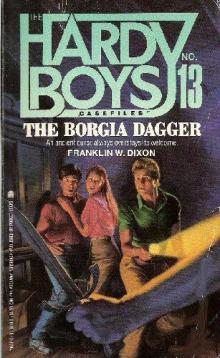 The Borgia Dagger
The Borgia Dagger Scavenger Hunt Heist
Scavenger Hunt Heist No Way Out
No Way Out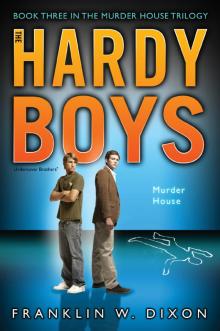 Murder House
Murder House The X-Factor
The X-Factor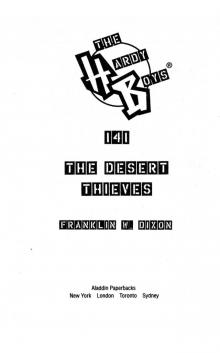 The Desert Thieves
The Desert Thieves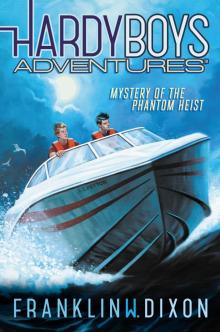 Mystery of the Phantom Heist
Mystery of the Phantom Heist The Battle of Bayport
The Battle of Bayport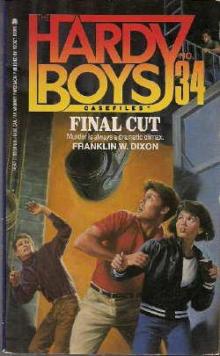 Final Cut
Final Cut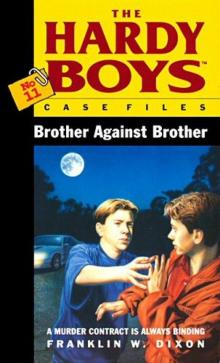 Brother Against Brother
Brother Against Brother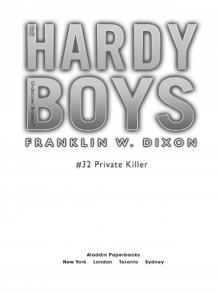 Private Killer
Private Killer The Mystery of the Black Rhino
The Mystery of the Black Rhino Feeding Frenzy
Feeding Frenzy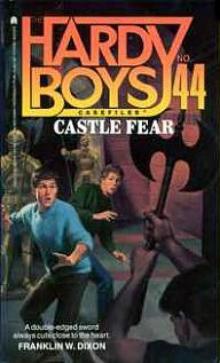 Castle Fear
Castle Fear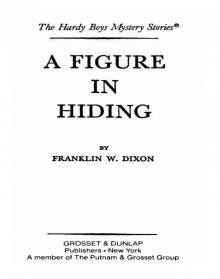 A Figure in Hiding
A Figure in Hiding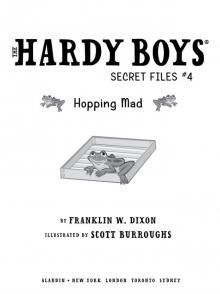 Hopping Mad
Hopping Mad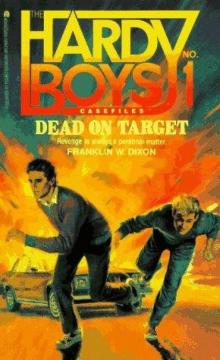 Dead on Target
Dead on Target Skin and Bones
Skin and Bones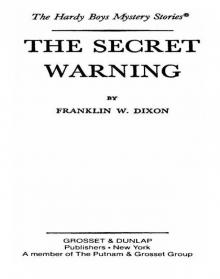 The Secret Warning
The Secret Warning Flesh and Blood
Flesh and Blood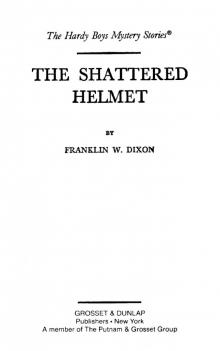 The Shattered Helmet
The Shattered Helmet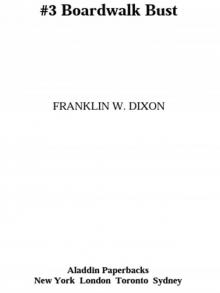 Boardwalk Bust
Boardwalk Bust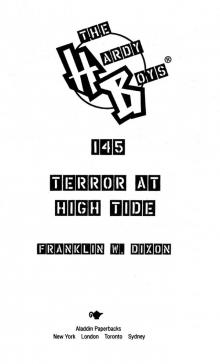 Terror at High Tide
Terror at High Tide In Plane Sight
In Plane Sight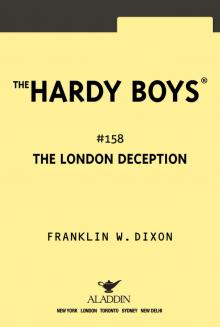 The London Deception
The London Deception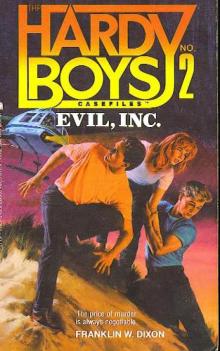 Evil, Inc.
Evil, Inc.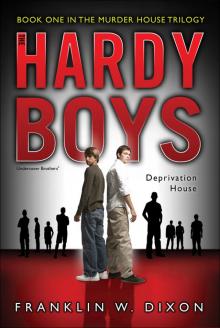 Deprivation House
Deprivation House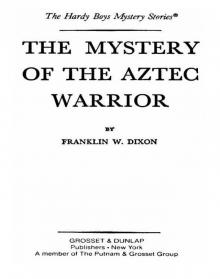 The Mystery of the Aztec Warrior
The Mystery of the Aztec Warrior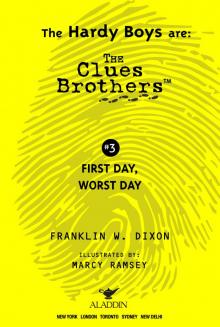 First Day, Worst Day
First Day, Worst Day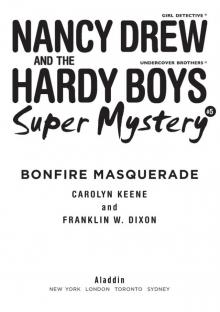 Bonfire Masquerade
Bonfire Masquerade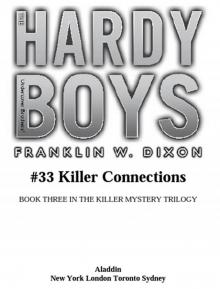 Killer Connections
Killer Connections Strategic Moves
Strategic Moves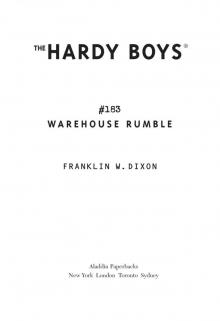 Warehouse Rumble
Warehouse Rumble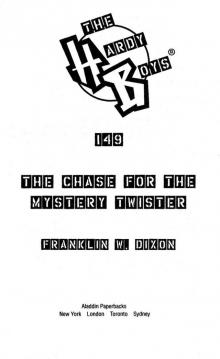 The Chase for the Mystery Twister
The Chase for the Mystery Twister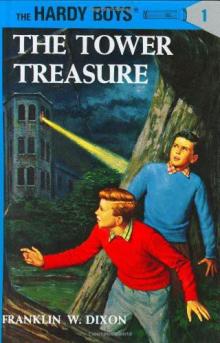 The Tower Treasure thb-1
The Tower Treasure thb-1 The Children of the Lost
The Children of the Lost The Last Laugh
The Last Laugh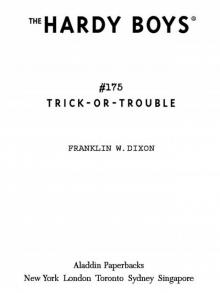 Trick-or-Trouble
Trick-or-Trouble Perfect Getaway
Perfect Getaway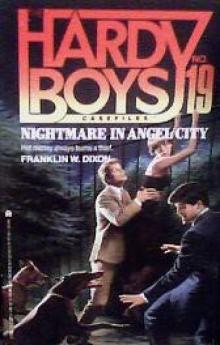 Nightmare in Angel City
Nightmare in Angel City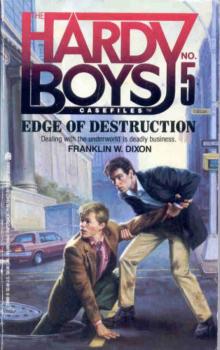 Edge of Destruction
Edge of Destruction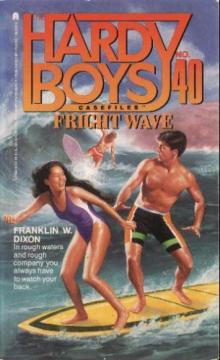 Fright Wave
Fright Wave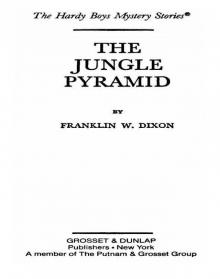 The Jungle Pyramid
The Jungle Pyramid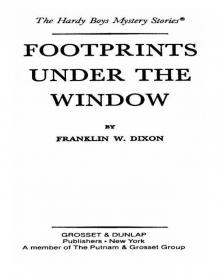 Footprints Under the Window
Footprints Under the Window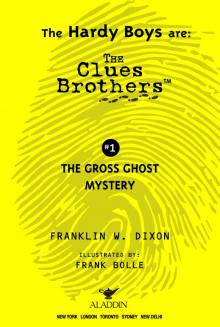 The Gross Ghost Mystery
The Gross Ghost Mystery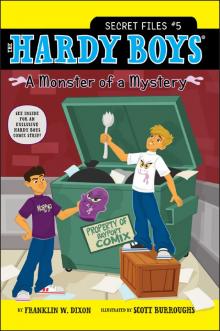 A Monster of a Mystery
A Monster of a Mystery House Arrest
House Arrest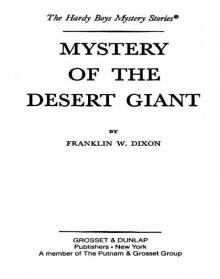 Mystery of the Desert Giant
Mystery of the Desert Giant Talent Show Tricks
Talent Show Tricks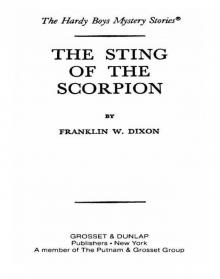 The Sting of the Scorpion
The Sting of the Scorpion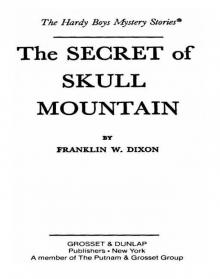 The Secret of Skull Mountain
The Secret of Skull Mountain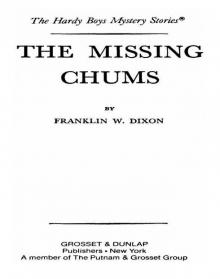 The Missing Chums
The Missing Chums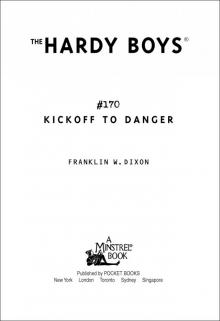 Kickoff to Danger
Kickoff to Danger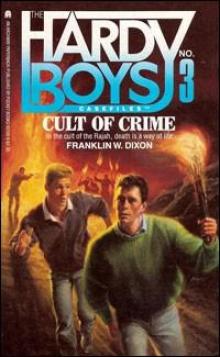 Cult of Crime
Cult of Crime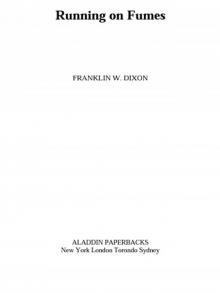 Running on Fumes
Running on Fumes Martial Law
Martial Law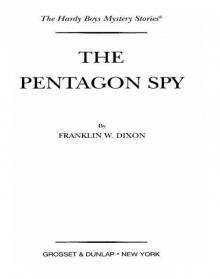 The Pentagon Spy
The Pentagon Spy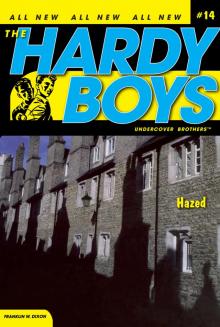 Hazed
Hazed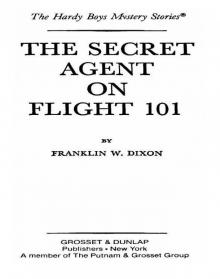 The Secret Agent on Flight 101
The Secret Agent on Flight 101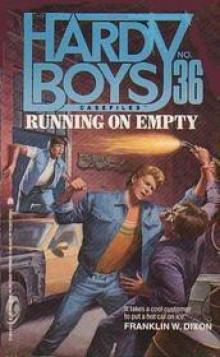 Running on Empty
Running on Empty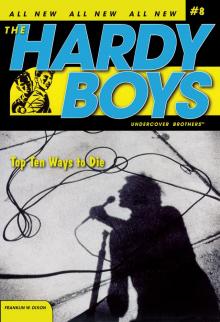 Top Ten Ways to Die
Top Ten Ways to Die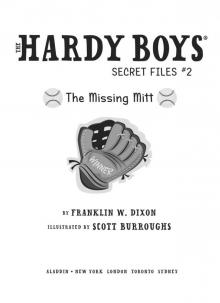 The Missing Mitt
The Missing Mitt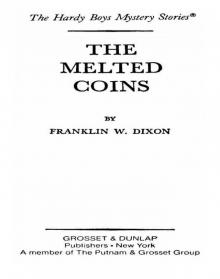 The Melted Coins
The Melted Coins The Rocky Road to Revenge
The Rocky Road to Revenge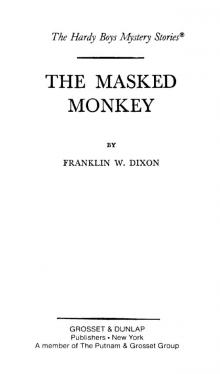 The Masked Monkey
The Masked Monkey Lost in Gator Swamp
Lost in Gator Swamp Extreme Danger
Extreme Danger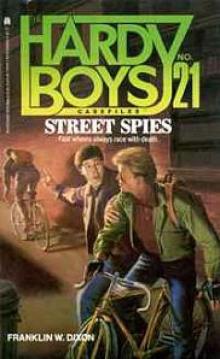 Street Spies
Street Spies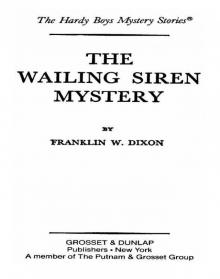 The Wailing Siren Mystery
The Wailing Siren Mystery The Dangerous Transmission
The Dangerous Transmission Hurricane Joe
Hurricane Joe The Crisscross Crime
The Crisscross Crime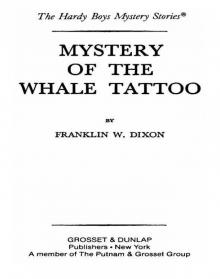 Mystery of the Whale Tattoo
Mystery of the Whale Tattoo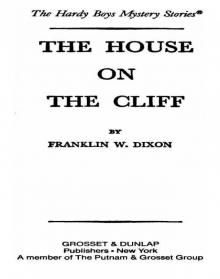 The House on the Cliff
The House on the Cliff Camping Chaos
Camping Chaos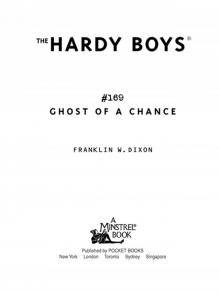 Ghost of a Chance
Ghost of a Chance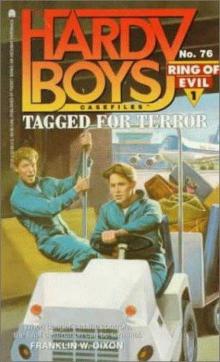 Tagged for Terror
Tagged for Terror Thrill Ride
Thrill Ride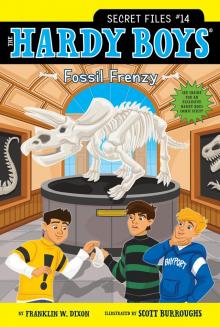 Fossil Frenzy
Fossil Frenzy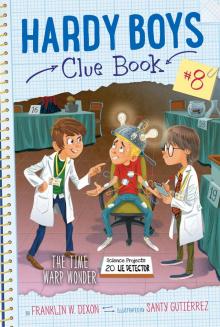 The Time Warp Wonder
The Time Warp Wonder Ghost Stories
Ghost Stories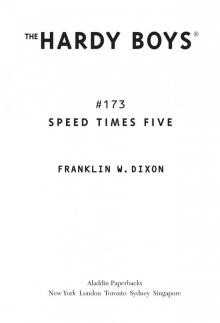 Speed Times Five
Speed Times Five What Happened at Midnight
What Happened at Midnight Three-Ring Terror
Three-Ring Terror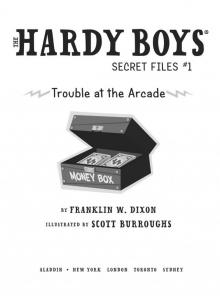 Trouble at the Arcade
Trouble at the Arcade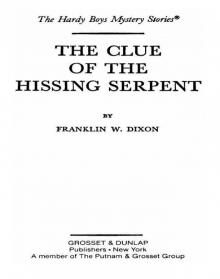 The Clue of the Hissing Serpent
The Clue of the Hissing Serpent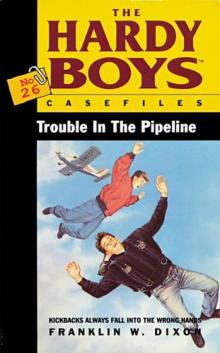 Trouble in the Pipeline
Trouble in the Pipeline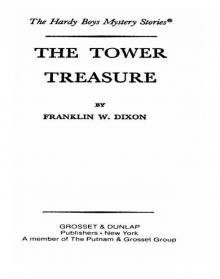 The Tower Treasure
The Tower Treasure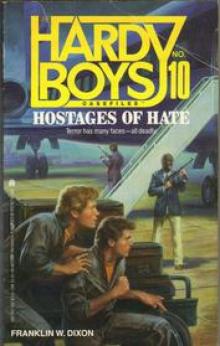 Hostages of Hate
Hostages of Hate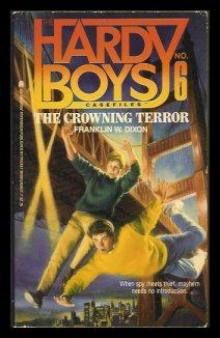 The Crowning Terror
The Crowning Terror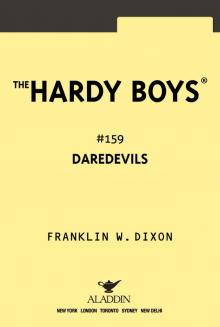 Daredevils
Daredevils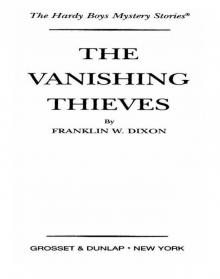 The Vanishing Thieves
The Vanishing Thieves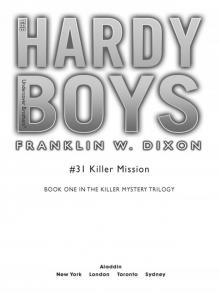 Killer Mission
Killer Mission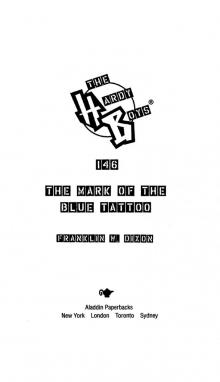 The Mark of the Blue Tattoo
The Mark of the Blue Tattoo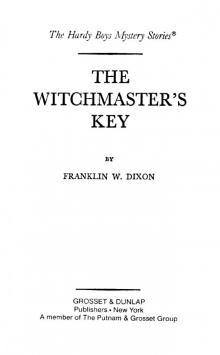 The Witchmaster's Key
The Witchmaster's Key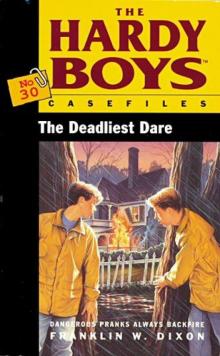 The Deadliest Dare
The Deadliest Dare Peril at Granite Peak
Peril at Granite Peak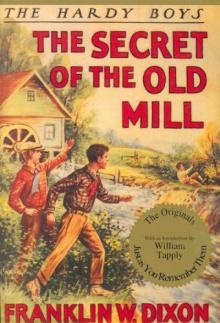 The Secret Of The Old Mill thb-3
The Secret Of The Old Mill thb-3 Rocky Road
Rocky Road The Demolition Mission
The Demolition Mission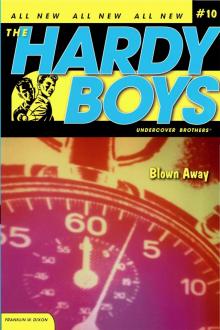 Blown Away
Blown Away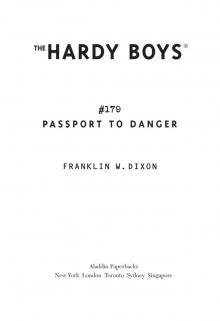 Passport to Danger
Passport to Danger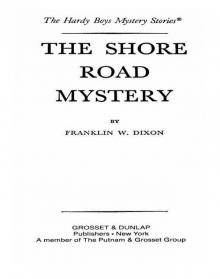 The Shore Road Mystery
The Shore Road Mystery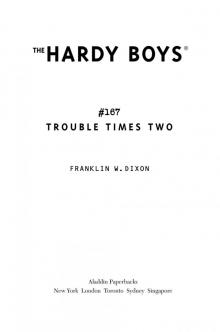 Trouble Times Two
Trouble Times Two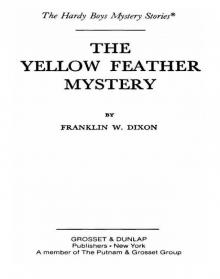 The Yellow Feather Mystery
The Yellow Feather Mystery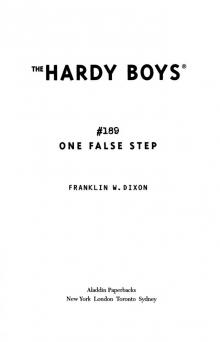 One False Step
One False Step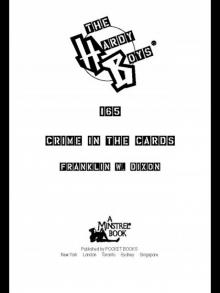 Crime in the Cards
Crime in the Cards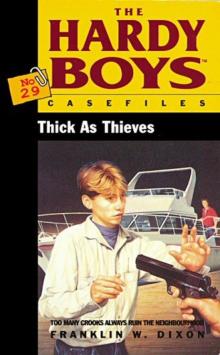 Thick as Thieves
Thick as Thieves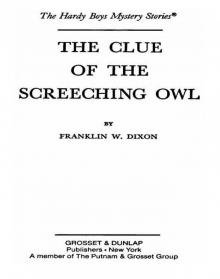 The Clue of the Screeching Owl
The Clue of the Screeching Owl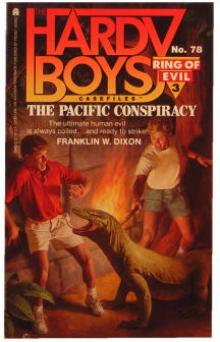 The Pacific Conspiracy
The Pacific Conspiracy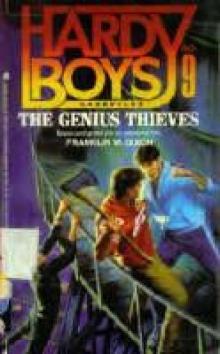 The Genius Thieves
The Genius Thieves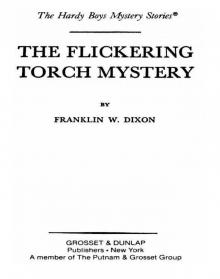 The Flickering Torch Mystery
The Flickering Torch Mystery Into Thin Air
Into Thin Air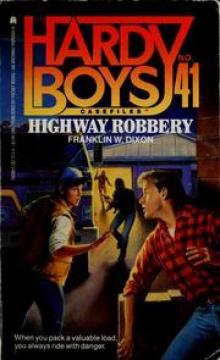 Highway Robbery
Highway Robbery Deadfall
Deadfall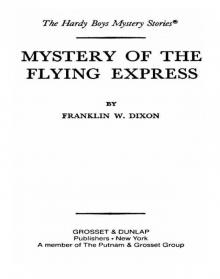 Mystery of the Flying Express
Mystery of the Flying Express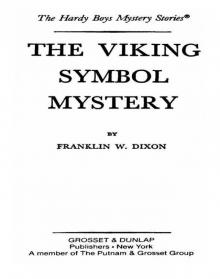 The Viking Symbol Mystery
The Viking Symbol Mystery The End of the Trail
The End of the Trail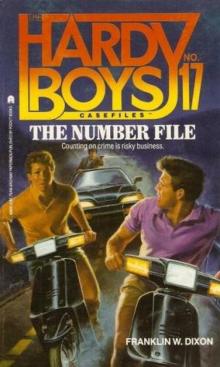 The Number File
The Number File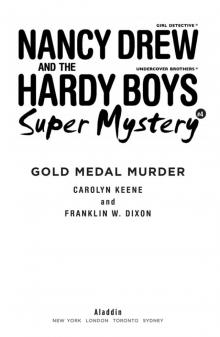 Gold Medal Murder
Gold Medal Murder Bound for Danger
Bound for Danger Collision Course
Collision Course The Madman of Black Bear Mountain
The Madman of Black Bear Mountain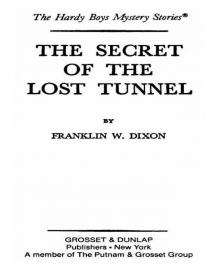 The Secret of the Lost Tunnel
The Secret of the Lost Tunnel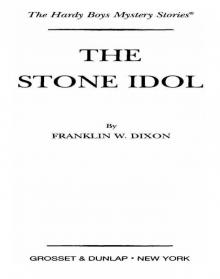 The Stone Idol
The Stone Idol The Secret of Pirates' Hill
The Secret of Pirates' Hill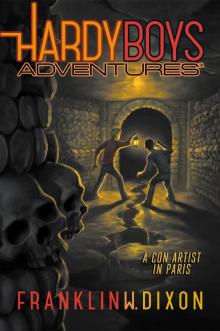 A Con Artist in Paris
A Con Artist in Paris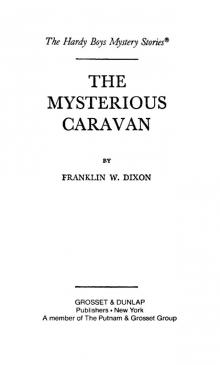 The Mysterious Caravan
The Mysterious Caravan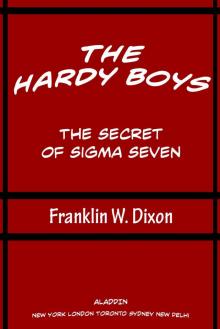 The Secret of Sigma Seven
The Secret of Sigma Seven The Twisted Claw
The Twisted Claw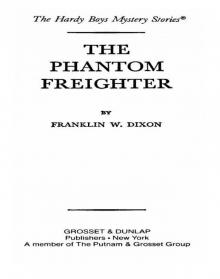 The Phantom Freighter
The Phantom Freighter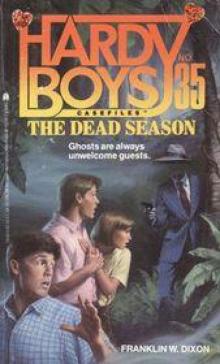 The Dead Season
The Dead Season The Video Game Bandit
The Video Game Bandit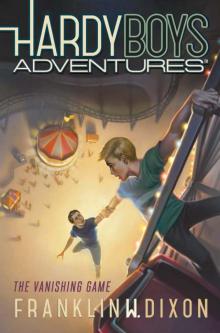 The Vanishing Game
The Vanishing Game Typhoon Island
Typhoon Island